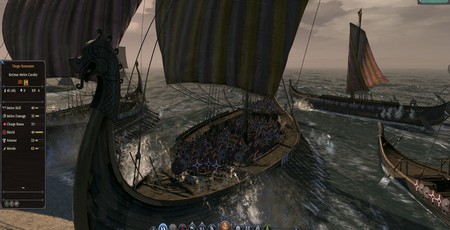
Price: £26.99
Developer: The Creative Assembly
Publisher: SEGA
Platform(s): PC
After the extravagant spectacle of Total War: Warhammer (and its sequel), making your next game as strikingly small-scale and unusual as Thrones of Britannia is a bold move, like following up a holiday to Disneyland with a weekend in Bognor Regis. This is probably why The Creative Assembly has addended the title of this Total War with the word Saga, so that nobody goes in expecting a continent-spanning conflict only to find themselves in the Total War equivalent of a fight in a pub car-park.
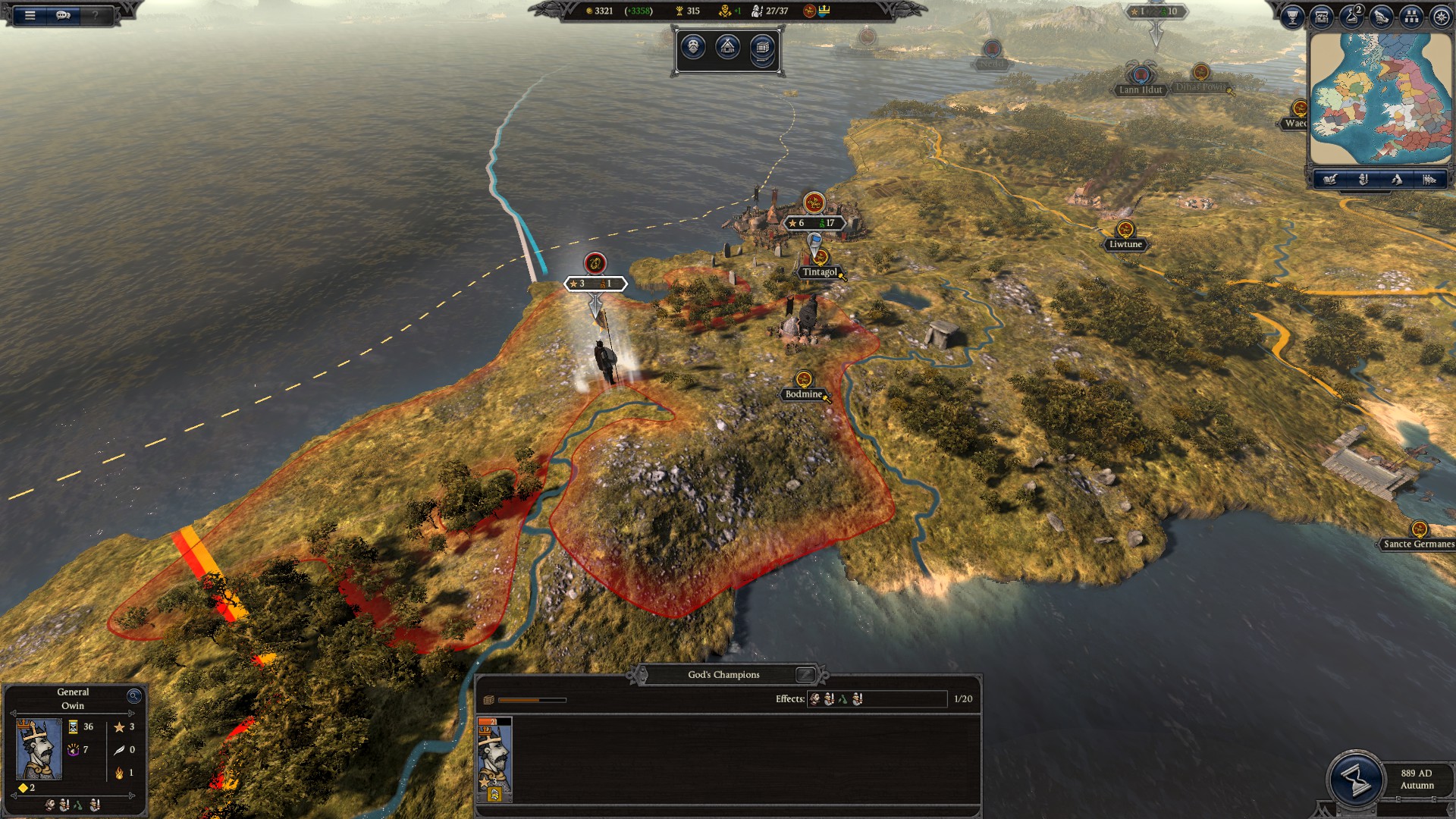
Clearly I'm being facetious, but in some ways Thrones of Britannia is undoubtedly a return to historical basics, featuring a smaller, Shogun-like campaign map, turns spread over seasons rather than years, and a narrower unit roster that mostly revolves around the traditional trio of infantry, archers, and cavalry. Unlike Shogun II, however, Thrones of Britannia isn't all about refinement. In some ways it's strikingly innovative, radically altering mechanics revolving around army recruitment and how provinces work, and introducing a brand new, Crusader Kings' II-style system of political intrigue.
Basically, it's an experiment, trying out a bunch of new ideas on a smaller canvas and at a reduced price. And although as an experiment it isn't entirely successful, there are some areas where Thrones of Britannia might just be the best game in the series.
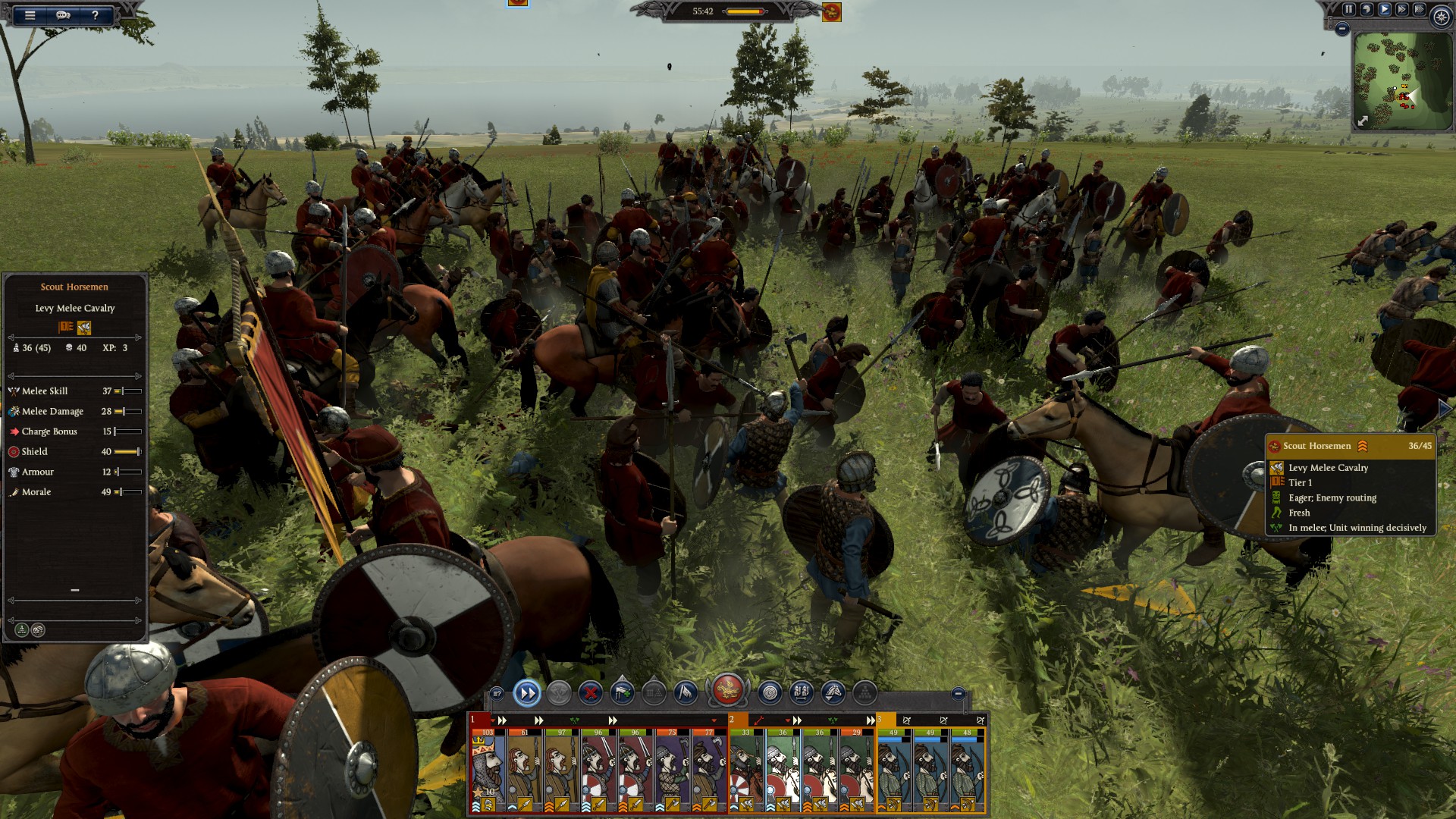
Thrones of Britannia takes place in 878 AD, commencing just after Alfred the Great smashes a huge Viking Army at the Battle of Edington. The game lets you choose whether to take up Alfred's mantle, striving to unite the various Kingdoms under the flag of England, or disrupt history by controlling one of several other factions, including the Kingdoms of Mercia and Northumbria, two flavours of Viking, and several Celtic factions hailing from Scotland, Ireland, and Wales.
At a broad structural level, Total War Britannia is business as usual. You build your economy and move your armies around on the turn-based campaign map, while fighting pitched battles and city-sieges in real-time. After your first few turns, however, it'll quickly become apparent that the strategic minutia of Thrones of Britannia are very different.
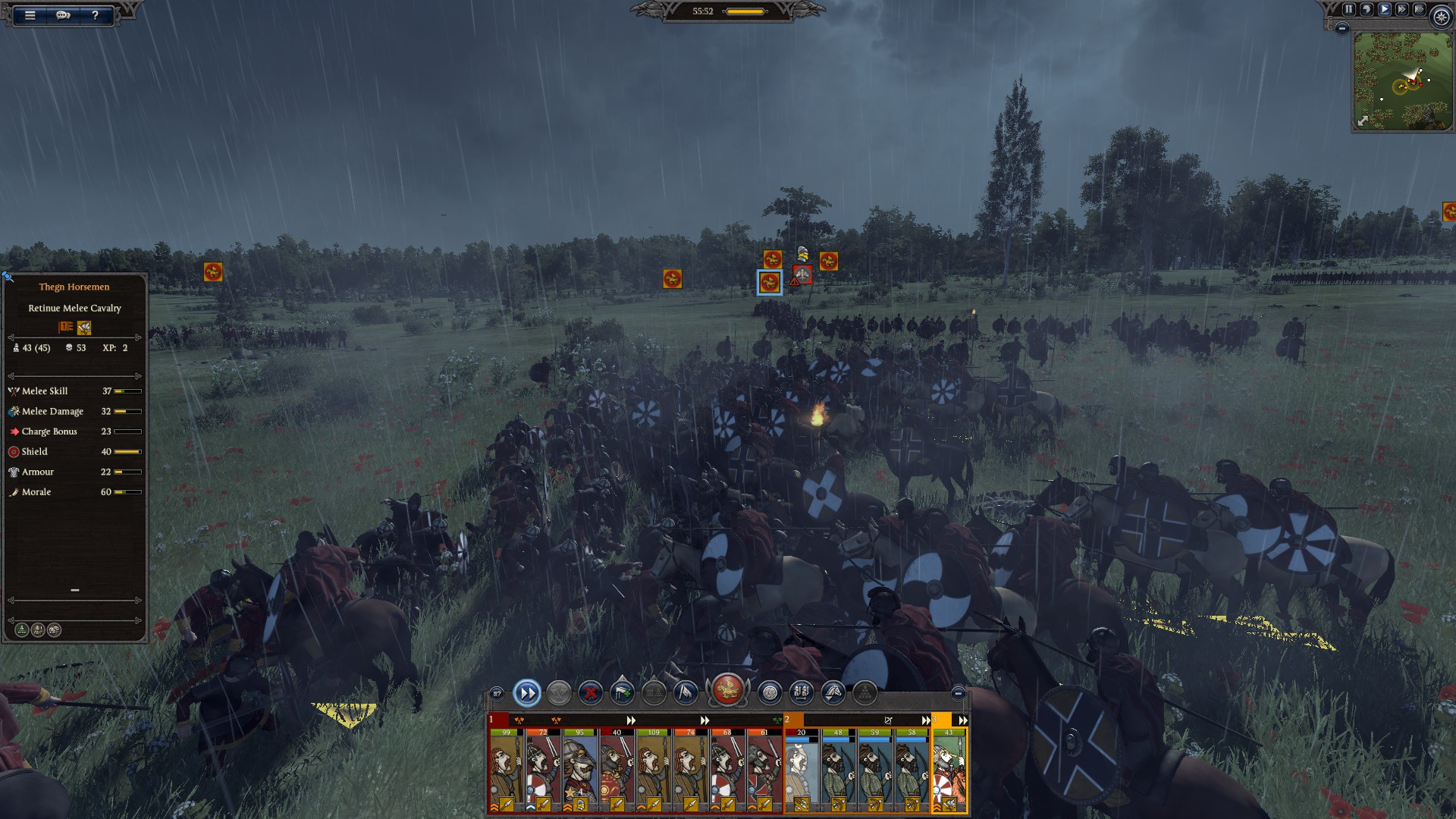
For starters, your enemies no longer solely exist outside your borders. Threats can now emerge from within, thanks to the game's new system of political intrigue. Your faction leader is surrounded by a court of nobles that includes your extended family, your army generals, and your provincial governors. All of these men (and they are nearly all men; women do feature in the game, but primarily as marital bargaining chips and producers of heirs) posses their own unique traits that are intended to define their personalities. Meanwhile, most faction members share several key stats. These are Influence, which governs how much clout a person carries within their faction, and Loyalty, which dictates how committed a faction leader's subordinates are to him.
To maintain a firm grasp on your leadership, you need to ensure that your Court members have high loyalty to you but lower influence than you, a balancing act that isn't always easy. You can gain a person's loyalty by bestowing upon them an honourary title, awarding them a nice country estate, arranging a marriage (or sometimes annulling one), or simply bribing them.
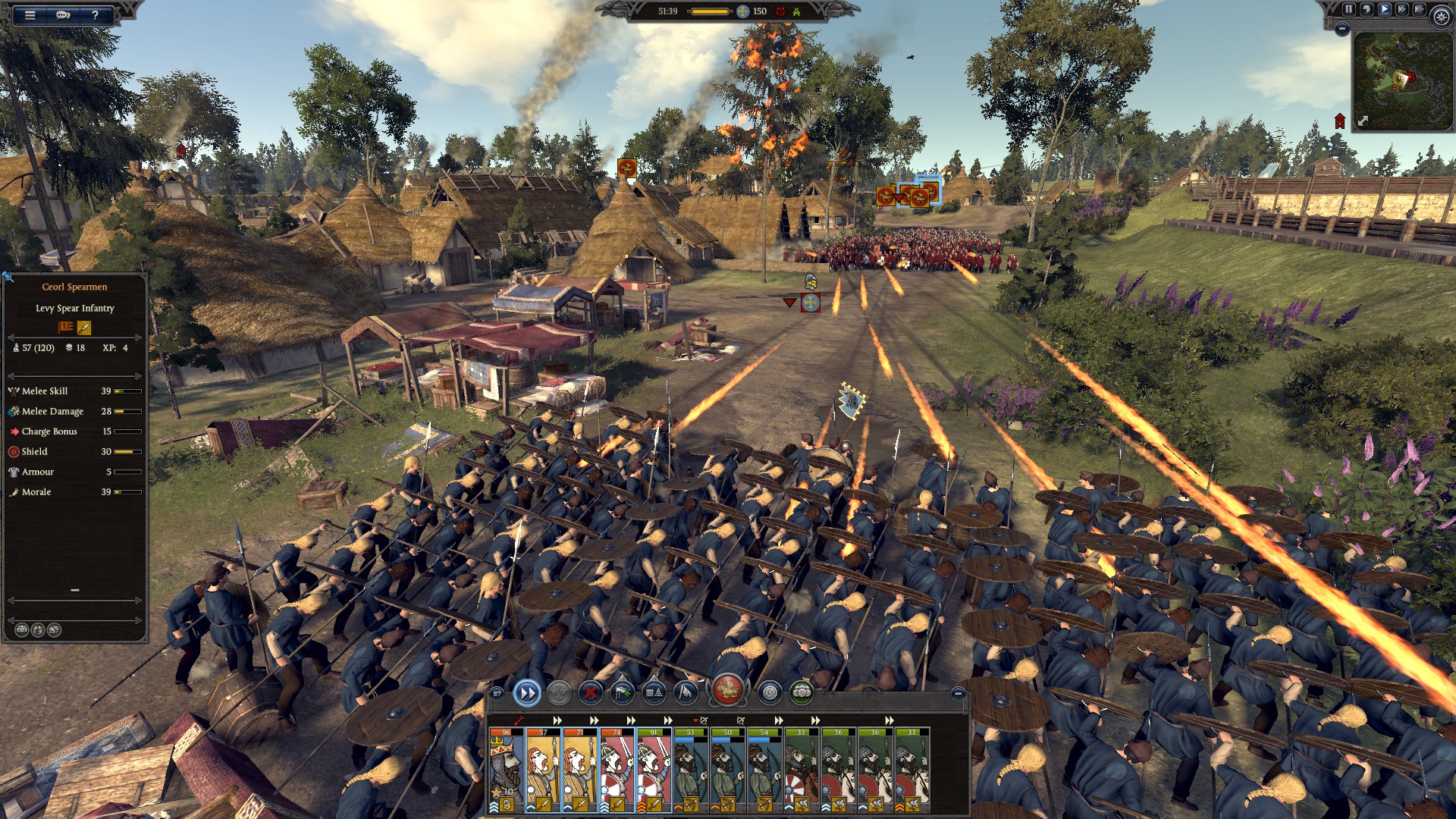
All of these approaches will likely increase their influence, however. And if a noble's influence starts to rival your own, then you might want to think about taking them down a notch by removing an estate, publicly snubbing them with the “lower influence” ability, or in worst case scenarios, assassinating them outright.
The aim of this system, clearly, is to imbue within Total War some of the compelling emergent stories that made Crusader Kings II a huge success. To some extent it achieves this. Playing as Alfred's Kingdom of West Saxe, early in my game one noble's influence began to rank worryingly highly, so I stripped him of an estate to knock it back down. Shockingly, this didn't go down well with the noble in question. In fact he got so upset he earned the trait 'Vengeful'. A few turns later, rumours began to circulate that he was plotting against me, and I could choose either to pay him off or ignore the rumours and further lower his influence. I did the latter, and apparently this second snub caused his co-plotters to turn against him and murder him instead, which proved a satisfactory, if rather extreme, solution.
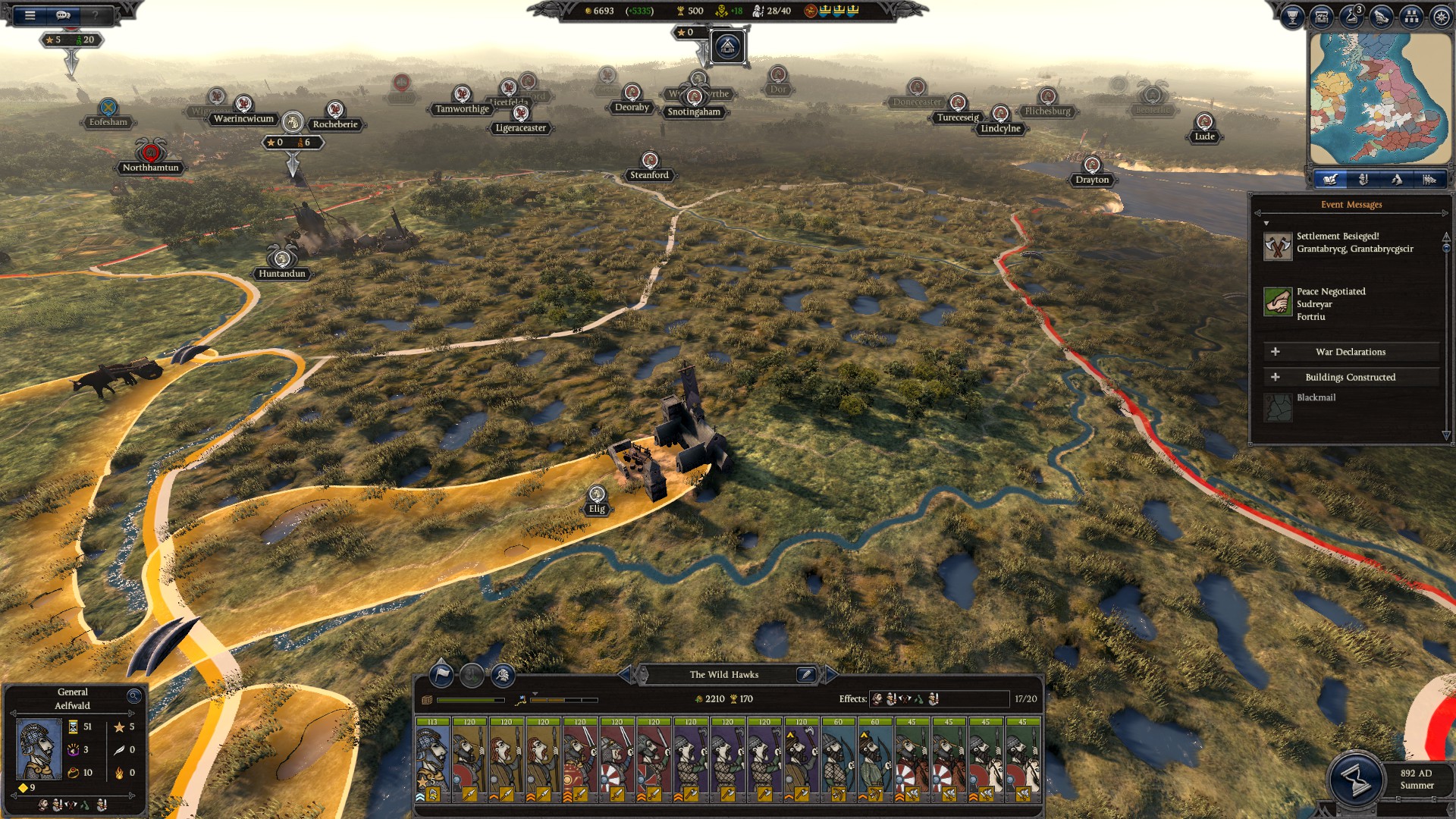
My issue with the intrigue system is that it doesn't feel baked into the core experience. Actual plots against my leader were very rare, and I only really dealt with the system when a noble's loyalty dropped to dangerously low levels, which only seemed to happen when my faction leader had more than two estates in his possession, and could easily be rectified by giving one to the disgruntled noble. Meanwhile, character traits don't seem to factor into the game much at all, and the fact that the intrigue system is only relevant to your own faction – and is separate from the more general diplomacy system – rather limits its potential to create these little stories.
Consequently, the intrigue system is only partially successful. That said, it certainly doesn't make the game worse, and there are other changes that have a far more dramatic impact on Thrones of Britannia's experience. For starters, unit recruitment has been completely redesigned. You no longer recruit specific units from constructed buildings. Instead, units are unlocked by research, and can be recruited from a general unit pool into any of your available armies, where they will appear immediately. But they are only recruited at about a third of their usual strength, and there's only a limited number of each unit available at any given time.

What this does, essentially, is make it far easier to put together a balanced army without being forced to move a handful of units across half the map. But the limited number of each unit also means you can't just cram an army with all your most elite units, while the low initial unit strength requires you to still plan your army movements in advance. The idea is to more accurately represent how army levies worked at the time. Elite units like Thegns and Berserkers were rare, while basic levies (basically armed peasants) were much more common. Britannia's recruitment system reflects this well. But more importantly it also eliminates unit micromanagement, and makes it much easier to field balanced armies across your faction, which is great.
The other key changes revolve around trying to make the ebb and flow of war more nuanced. Armies now carry supplies with them which deplete while in enemy territory. If they hit zero, your soldiers will start to desert. So you'll need to either occupy a city, raid the surrounding countryside, or return to your borders to prevent this from happening. Meanwhile, your faction's general attitude to war is determined by a stat called War Fervour. If a war goes on too long, this will start to deplete, reducing public order and possibly resulting in rebellion.

Britannia also tries to broaden your tactical options and increase the number of challenges you face to make the trajectory of the game less predictable. Rebellions both factional and provincial tend to be much more frequent across the board, which means there are plenty of opportunities to quickly snatch an extra town or village without going to war for it. At the same time, however, Britain's coastlines are frequently visited by bands of Viking marauders, a little like the Chaos invasions of Total War: Warhammer. This means you're reacting and adapting your strategies far more frequently than in previous games, which makes a campaign feel far more unique to you.
Even the way provinces work has been altered to try to make the tide of war less rigid. Your provinces comprise several settlements, only one of which has walls. Hence it's easy to sack or occupy an enemy village, and you can do this repeatedly to harass and weaken an opponent before committing to a full-scale attack. Of course, other factions can do the same to you, so even a small enemy force can cause you serious problems if you leave them unattended. Incidentally, the reduced focus on capturing cities also means you have more pitched battles and fewer sieges, which makes the real-time side of the game generally more fun.
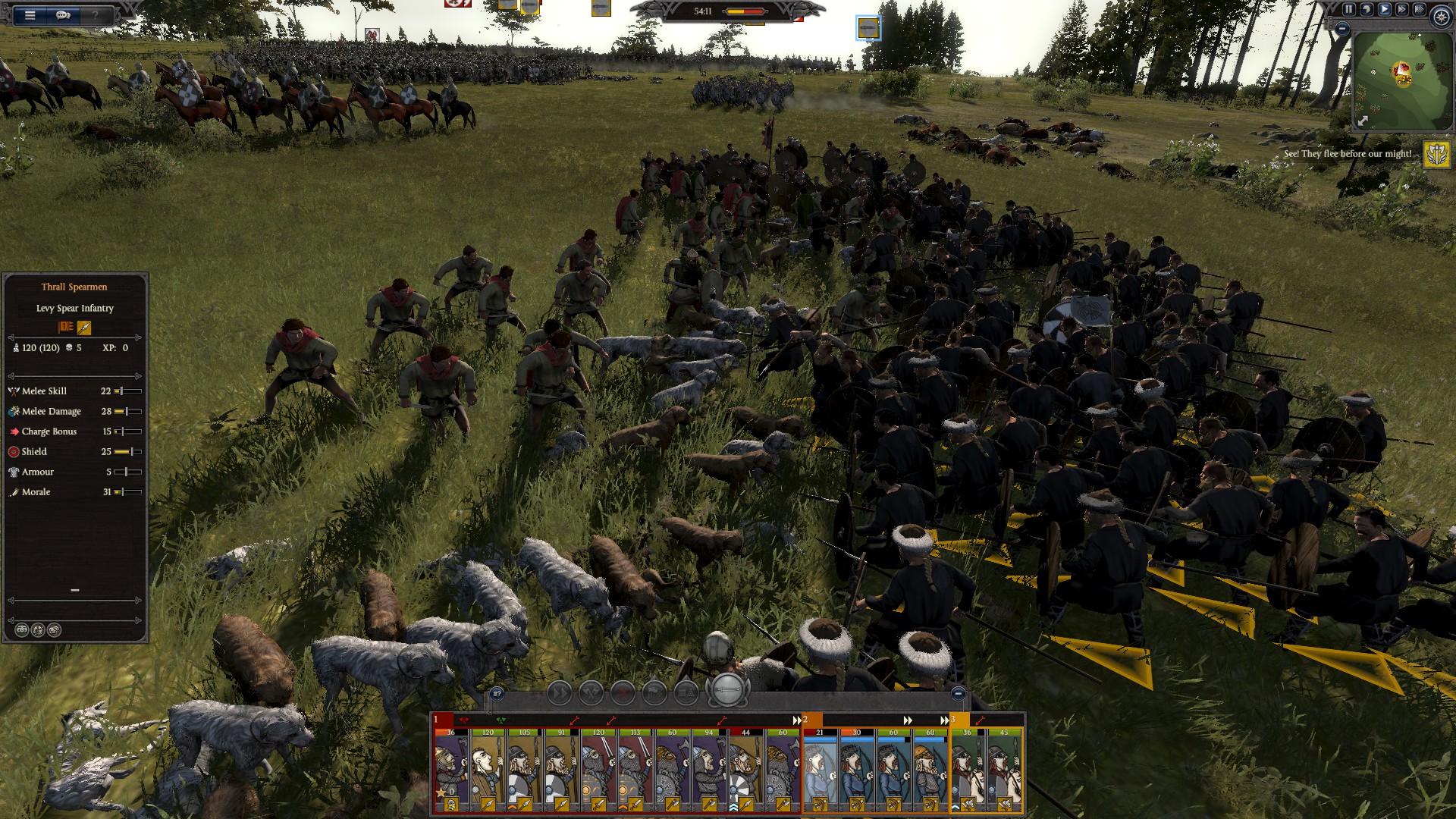
You may have noticed that during the course of this review I haven't spoken much about the battles themselves. This is because they're the part of the game which has changed the least, in a mechanical sense anyway. As has become the norm for Total War, each of the factions has its own unique look and a handful of specialised units, including a few interesting ones like the War Dogs of Gwynned and the powerful Viking Beserkers. Generally, though, the unit roster is the most conservative Total War has seen since Shogun II. Most armies emphasise spears, swords, and axes, with smaller components of archers and a sprinkling of cavalry.
This more focussed roster of units may not be a bad thing, however. Personally, I found battles to be some of the most balanced of all Total Wars. Numbers are much less significant in Thrones of Britannia than unit quality and the command level of your general. A handful of West Saxe's more elite units can easily overcome a larger force made up of peasant levies, while the highly detailed battle maps make for some pretty interesting tactical challenges. I particularly enjoyed besieging the Cornish town of Tintagiol, which is built in and around a spiralling bowl of rock that funnels your army through a narrow passage flanked by watchtowers.

Thrones of Britannia isn't the most spectacular game in the series, and it's a shame that the intrigue system doesn't feed into the core game as much as I would like. But the other changes The Creative Assembly have made do result in a far more nuanced and varied strategic challenge, and there's a lot to be said for the game's stripped back yet more robust battles. Plus, any game that lets you burn London to the ground and invade the Isle of Man is worth £25 of anyone's money.


MSI MPG Velox 100R Chassis Review
October 14 2021 | 15:04

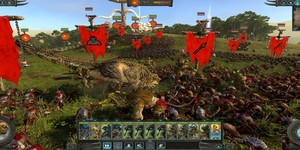






Want to comment? Please log in.